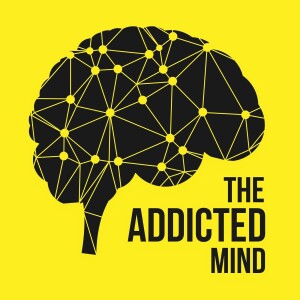
15: LifeRing - Peer-to-Peer Support in Secular Recovery with Jason Groce
 2017-11-02
2017-11-02
Jason Groce stops by to talk about sobriety, dual diagnosis, and the recovery support group LifeRing. For 10 years, Jason was an on again off again alcoholic. He would stay sober for periods of time or attempt to moderate. Eventually, stressors would pile up and he would start drinking. He tried support groups but didn’t find them helpful. 3 and a half years ago, a social worker asked him what he was going to do differently. It wasn’t his first time to the hospital, but he was committed to making it his last. He agreed that he needed to find a community to stay sober.
LifeRing got Jason’s attention. He attended a meeting, and the format worked for him. The philosophy of secularism and personal empowerment spoke to Jason. He’d always struggled with the spiritual components of other programs, and the emphasis on powerlessness and surrender. Most of all, he liked the more conversational structure of the meeting. Each meeting, participants are invited to share about their last week. It can be directly related to sobriety, but it doesn’t have to be. Crosstalk is encouraged. People interrupt to ask questions, offer support, or share similar experiences.
Two concepts undergird LifeRing’s philosophy: the 3 S’s and the addict self – sober self-conflict. The 3 S’s are sobriety, secularity, and self-help. Sobriety because LifeRing is an abstinence-based program. Secularity because LifeRing promotes models of recovery generated by human effort. And self-help because LifeRing believes that each individual’s journey to sobriety is their own, and the role of the group is to reinforce each individual’s motivation and efforts. The conflict between the Addict Self and the Sober Self represents LifeRing’s belief about the nature of addiction recovery. The process of recovery involves strengthening and reinforcing the sober self. The addict self will always be there, but we can do everything in our power to amplify our desire to live a fulfilled, sober life.
In this episode we also talk about:
The intervention that led to Jason’s recovery Atheism and recovery Why LifeRing’s meeting format and absence of an organized doctrine are important to Jason The differences between LifeRing, 12-step programs, and other peer support groupsMore Episodes
 2021-04-19
2021-04-19
 2021-04-08
2021-04-08
 2021-04-01
2021-04-01
 2021-03-26
2021-03-26
 2021-03-11
2021-03-11
 2021-03-04
2021-03-04
 2021-02-25
2021-02-25
 2021-01-14
2021-01-14
 2020-12-04
2020-12-04
Create your
podcast in
minutes
- Full-featured podcast site
- Unlimited storage and bandwidth
- Comprehensive podcast stats
- Distribute to Apple Podcasts, Spotify, and more
- Make money with your podcast
It is Free
- Privacy Policy
- Cookie Policy
- Terms of Use
- Consent Preferences
- Copyright © 2015-2024 Podbean.com





